
Testimonials and practical tips
The career path of the tenure-track professorship is firmly established in Germany. tenure-track professors share their experiences with the choice of employment, the application process and the evaluations, thereby helping young scientists in planning their career path. In additional interviews, university administrations talk about the significance of the new career path for Germany as a research location, how it makes universities more attractive and how talented young people are supported.
Interviews with tenure-track professors
Prof. Dr. Tobias Sutter, tenure-track professor for Computer Science and Machine Learning at the University of Konstanz
Prof. Dr. Sophia Rudorf, tenure-track professor for Computational Biology at Leibniz University Hannover
Interviews with university administrators
Prof. Dr. Michael Hoch, President of the University of Bonn
Prof. Dr. Angela Ittel, President of the Technical University of Braunschweig
Prof. Dr. Oliver Günther, President of the University of Potsdam
|
Prof. Dr. Tobias Sutter, tenure-track professor for Computer Science and Machine Learning at the University of Konstanz |
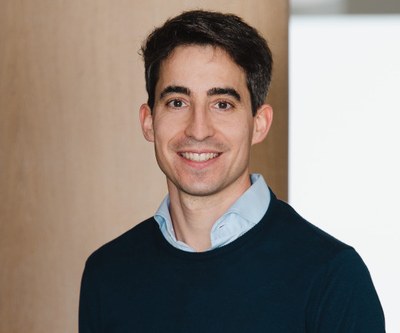
“For me, the tenure track was the decisive factor. I’m not sure I would have accepted the position without that prospect.”
Why did you choose the tenure track career path?
I think the tenure-track programme is very attractive since it offers the prospect of a permanent W3-level position, subject to convincing performance. This performance-based, secure long-term outlook was very appealing to me.
From today’s perspective, would you advise a young scientist to apply for a tenure-track professorship in Germany? Why or why not?
Definitely! As far as I can see, Germany’s academic system is working extremely well. It offers generous financing for fundamental research, thereby enabling innovative projects. Students also receive an outstanding education in the basic disciplines, establishing a solid basis for their fundamental research. The excellence of the German academic system attracts many international students and researchers. Overall, Germany’s system creates ideal conditions for research and teaching.
What made your job offer attractive and why did you decide to accept this offer?
For me, the tenure track was the decisive factor. I’m not sure I would have accepted the position without that prospect. The funding is also very good, with many different options within the university (for example, through the “Zukunftskolleg” at the University of Konstanz) and externally to obtain funds for employees.
Are there things you know now that you wish you had known before applying?
In my opinion, the application procedure in Germany is very formal and transparent. It places great emphasis on taking different views of fairness into account.
What tips do you have for potential applicants for a tenure-track professorship based on your personal experiences in the selection and appointment process?
Make sure that you have a clearly defined profile. I believe it helps when the applicant is able to convincingly describe that they strive excellence in their research, which is the most important point here. It is also helpful to have a clear concept of what you want to achieve and why the institution you are applying to is the right one for reaching these academic goals.
What support programmes (aimed at professional development, family obligations and/or equal opportunities, for example) have helped you personally? What additional support would you like to see?
The university and its services supported me in multiple ways. They helped me with the preparation of research applications by offering extremely helpful advice for young scientists. In addition, they assisted me with hiring doctoral candidates and the associated formal application procedures. They also facilitated the digitalization of my lectures, for example, through outstanding video recording support. The career counselling service at the University of Konstanz also advised me on academic career planning in several sessions.
Was the tenure-track professorship career path in Germany an incentive for you to pursue your further scientific career in Germany?
Since I grew up in Switzerland, I already knew about the excellent research conditions in Germany. I was aware that Germany’s education system focuses on the fundamental sciences and I find that very attractive. The Konstanz region is also very close to Switzerland, so I already knew it relatively well.
You have successfully completed the interim evaluation. How did that go and what was the process like for you? What tips do you have for other scientists?
Yes, I’ve passed the interim evaluation. Like the application procedures in Germany, the interim evaluation is quite formal and therefore also transparent. It is fair as far as I can tell. The exact process was explained to me in detail by the university and faculty colleagues, so I knew what to expect.
As a tip, I would encourage future young tenure-track professors to talk to colleagues in the faculty who have already gone through this stage. It certainly helps to understand exactly how this interim evaluation works in concrete terms. Finally, I think it’s important to be productive, to maintain high quality standards in research and teaching, and to actively pursue third-party funding. That’s a rough outline of the interim evaluation’s most important elements.
More interviews
Back to top of page
|
Dr. Sophia Rudorf, tenure-track professor for Computational Biology at Leibniz University Hannover (LUH) |
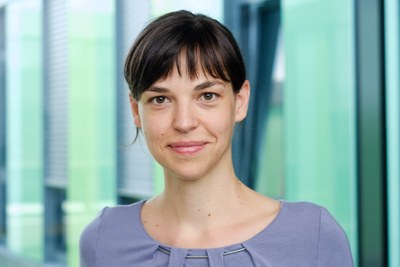
From today’s perspective, I would definitely advise any passionate young scientist with staying power to apply for a tenure-track professorship in Germany.
Why did you choose the tenure track career path?
After working at the Max Planck Institute of Colloids and Interfaces directly after the conferral of my doctorate, a professorship seemed like the natural next step in my career. I found the tenure-track professorship particularly attractive because, unlike other typical career moves, it offers realistic long-term prospects to continue working in research and teaching.
A reduction of the teaching hours is a great advantage of the tenure phase. One is also “spared” somewhat from participating in committees during this time. The focus is very clearly on good teaching performance and the establishment of an own research group.
From today’s perspective, would you advise a young scientist to apply for a tenure-track professorship in Germany? Why or why not?
Notwithstanding the aforementioned advantages, potential candidates should clearly understand that the performance expectations for tenure-track professors are high. One must be able to withstand the resulting pressure during the probationary period, which is after all five years. From today’s perspective, I would definitely advise any passionate young scientist with staying power to apply for a tenure-track professorship in Germany. It’s an excellent opportunity to build a long-term academic career and to work in a demanding but rewarding environment.
What made your job offer attractive and why did you decide to accept this offer?
The opportunity at Leibniz University came at exactly the right time for me and was a perfect fit for my research area. It was clear that I would have many interesting points of contact within the faculty, the university, the city and the region. I have already been able to initiate numerous new cooperation projects since coming to LUH more than three years ago. I consider this perfect fit of my expertise with the local circumstances to be essential for success in the tenure-track programme.
The prospect of a W3-level tenure position was another attractive aspect of the job offer. The university’s location is also ideal for me and my family, making a professorship at LUH much more attractive than, for example, a comparable position abroad. Altogether these factors were decisive for my ultimate decision in favour of the Leibniz University Hannover’s offer.
What tips do you have for potential applicants for a tenure-track professorship based on your personal experiences in the selection and appointment process?
I think it’s extremely important to take sufficient time for the application and to do thorough research. You should intensively examine the question of what makes you a good fit for the advertised position and what makes you attractive for the faculty. It’s crucial to also give teaching its due and to prepare a high-quality demonstration lesson. Above all, you should have a concrete and convincing idea of how to move the institution forward in cooperation with colleagues.
One can however encounter surprising details in the process: In my case, for example, it only became clear after the application procedure that the agreed goals in fact had to be reached after just four rather than five years. It can also be helpful to inform yourself in advance of what happens if the tenure process is unsuccessful or in case the tenure phase is interrupted, for instance by the birth of a child.
What support programmes (aimed at professional development, family obligations and/or equal opportunities, for example) have helped you personally? What additional support would you like to see?
The support of people close to me, in particular the director of the institute and faculty colleagues, was especially helpful. LUH also offers practical support, for instance an outstanding ERC application service as well as free, readily accessible emergency childcare. Professional coaching is also offered for professors along with numerous offers for new appointees that benefited me a great deal as a tenure-track professor.
To what extent was the tenure-track professorship career path decisive in choosing to focus on Germany for your further scientific career planning?
My family situation would have made a career abroad much less attractive. For me, the opportunity to have long-term prospects for an academic career in Germany was decisive for the application. I would not have applied if the position had not included a commitment to the tenure track.
You have successfully completed the interim evaluation. How did that go and what was the process like for you? What tips do you have for other scientists?
An interim evaluation in that sense is not done at LUH. Instead, you have a status meeting with the dean. This meeting is intended to identify any existing risks and to offer suggestions for corrective actions. I prepared for the meeting by extensively documenting my performance to date and writing a report on my activities. After the meeting, I felt that my assessment that I am already very well positioned was confirmed. I think this reflection can be very helpful, even though the status meeting in Hannover has no direct consequences for the process.
Back to top of page
| Prof. Dr. Michael Hoch, President of the University of Bonn |
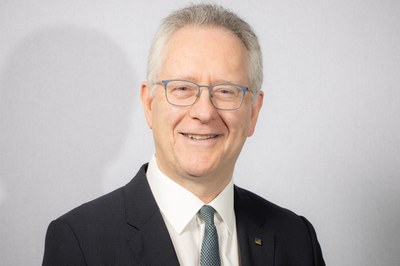
“Recognising a new career path requires change, especially also in the various disciplines. This has doubtlessly been successful!”
From your perspective, what is the significance of the tenure-track professorship in Germany’s scientific system?
The significance is high and continues to grow – which is a very positive trend! Germany’s scientific system now has an additional career path to a professorship aside from the “classic” habilitation path. Clear prospects are established for tenure and also for higher-ranking professorships. This provides considerably better support for the development of outstanding talent and for personal career management and planning, which automatically makes universities more attractive. This attractiveness is fundamental. Clearly, we are not only engaged in fierce international competition for the best researchers and faculty. Demographic change and the associated general shortage of skilled workers also require universities to be competitive in order to attract, recruit and retain the brightest minds of all generations and from around the world.
When you consider the scientific culture at your university, would you say the introduction of the tenure-track professorship caused a cultural change?
The University of Bonn introduced the tenure-track professorship back in 2009. Recognising a new career path requires change, especially also in the various disciplines. This has doubtlessly been successful! tenure-track professorships are now offered by us in all faculties and in our TRAs, the transdisciplinary research areas. This clearly indicates just how positive the experiences have been and are. Also for the tenure-track professors themselves, who tell us that they view this path as a great opportunity for their career.
What influence does the introduction of the tenure-track professorship in Germany have on the international attractiveness and competitiveness of your university?
Habilitation is not necessarily established in other scientific systems. The so-called second book is also an obstacle for many who want to qualify for a lifelong professorship through great monographic or cumulative research performance. This can be a reason why someone does not want to enter the German scientific system. That’s exactly where the tenure-track professorship improves our international competitiveness. We need it to attract international, excellent scientists from around the world or to prevent them from leaving.
What opportunities does the tenure-track professorship offer for scientists in an early career phase?
Reliability and predictability with regard to one’s career and the transparency of the evaluation procedure. Especially for scientists in an early career phase, where this step coincides with a special phase in family life, this can be a great opportunity. At the University of Bonn, we also offer a range of qualification formats in the area of personnel development. Naturally, these consider career paths outside of science as well, for instance in scientific management. The path to a career other than a lifelong professorship is also an opportunity offered by the tenure track.
In your opinion, what’s important in designing the evaluation procedures? How are professors supported in preparing for that?
The University of Bonn with its standards of excellence establishes the evaluation criteria for the interim and final evaluations at the time the professorship is advertised. This is important in order to establish clear and consistent expectations at the time of application. At the same time, the criteria have to meet overarching standards. We have agreed on university-wide guidelines for the design of the criteria in our tenure track policy. Various faculty-level and overarching bodies and authorities at our university are involved in the evaluation procedure itself, ensuring objectivity, transparency and quality. Personnel Development and Appointment Management offer information and advice to help tenure-track professors prepare. For example, they have access to coaching sessions on topics of their choice, training in various areas and networking activities. If they want, they can also choose a mentor for support in the tenure-track professorship. Annual status meetings with the responsible dean are also mandatory at our university, ensuring that scientists receive regular feedback on their development even before the actual evaluation process.
What support is offered at your university to promote work/family balance? How does this address the needs of scientists in an early career phase?
We are certified as a family-friendly university and have various bodies that support different facets of work/family balance. For example, we have a very successful onboarding service that assists professors in all professional and private matters pertaining to their work with us, even before the commencement of their duties. Our family office also provides advice and support for topics such as childcare, maternity protection, parental leave and caring for relatives. Then there is the broad range of offers and lines of funding of the equal treatment office, the prorectorate and the staff unit for equal opportunities and diversity. Help with finding daycare spaces and with school registration are the most common requests. Here we provide all the support we can. We also offer emergency and holiday childcare as well as babysitting. In addition, we are observing a development that pleases me greatly; where conditions permit, children are being brought along to lectures and courses, not only by faculty but also by the students.
More interviews
Back to top of page
| Prof. Dr. Angela Ittel, President of the Technical University of Braunschweig |
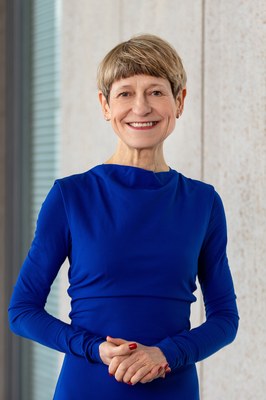
“The stated goal is to integrate young talent with their independent performance into our research infrastructure early on.”
From your perspective, what is the significance of the tenure-track professorship in Germany’s scientific system?
The tenure-track professorship is an important tool in making Germany internationally attractive as a science location. It requires an important cultural shift, binding young talent to our institutions early on and giving them opportunities to realise their strong scientific performance.
When you consider the scientific culture at your university, would you say the introduction of the tenure-track professorship caused a cultural change?
The significance of the tenure-track professorship is generally recognized and highly valued at TU Braunschweig. We are increasingly advertising tenure-track professorship outside the tenure-track programme as well. All of this indicates that a cultural change is under way. The stated goal is to integrate young talent with their independent performance into our research infrastructure early on.
What influence does the introduction of the tenure-track professorship in Germany have on the international attractiveness and competitiveness of your university?
We have successfully appointed several international scientists to tenure-track professorships. What’s more, we were able to bring some post-docs of German origin who were working abroad back to Germany by offering a tenure-track professorship. This speaks for the high degree of attractiveness and competitiveness of the model at our university.
What opportunities does the tenure-track professorship offer for scientists in an early career phase?
The tenure-track professorship offers talented young people the opportunity to develop themselves early on at an institution, to build networks, and to utilise and shape research infrastructures. All of these are very important prerequisites for the successful design of the early career phase. Naturally, the tenure-track professorship also provides scientists with greater certainty in the early career phase regarding the future location of their scientific career than a post-doctorate with a limited term.
In your opinion, what’s important in designing the evaluation procedures? How are professors supported in preparing for that?
The transparency and fairness of the procedure and a balanced selection of evaluation criteria are important. TU Braunschweig is a member of the Coalition on Research Assessment (CoARA) and has prepared an action plan to review its own research evaluation procedures. This means that the evaluation procedures for the tenure-track professorship will also be subject to review and further development going forward.
In the course of the evaluations, the faculties are closely supported by the corresponding bodies and, for example, informed in a timely manner about the start date of the interim and final evaluations. A corresponding guideline has been developed regarding the structure and content of the report on the interim and final evaluation, including recommendations and general requirements, and provided to the faculties for support. tenure-track professors are provided with a corresponding guideline on the structure and content to help them prepare the required self-evaluation report. Within the framework of the professorship programme, an onboarding programme for newly appointed professors at TU Braunschweig, we offer presentations on the evaluation procedure that provide information and answer questions. Professors also receive support in course preparation and applying for third-party funding through systematic advice and workshops/information events (EU application, ERC application). A career development workshop that is currently being designed is part of the programme as well.
What support is offered at your university to promote work/family balance? How does this address the needs of scientists in an early career phase?
Specific measures can be financed out of the tenure-track programme’s strategy supplement for all tenure-track professors who do care work (childcare and/or caring for family members).
In order to design support programmes for tenure-track professors that are tailored to suit their needs, the family office and the equal opportunities staff unit conducted a needs survey. Their questions were answered in personal consultations and their individual feedback was solicited for the further development of the following four measures:
1. Expansion of the family-friendly infrastructure, for example, additional parent/child rooms in the building and child-friendly furnishing of the own office (e.g. with a travel cot, toys, reclining chair etc.)
2. Childcare with the local Braunschweiger Bündnis für Familie or at the place of residence, e.g. for up to 10 hours per month
3. Additional student/scientific assistants to provide support/relief for own teaching/research activities
4. Financing of a teaching assignment for compensation (in the first two semesters)
The early career phase of tenure-track professorship is also extended with justification, e.g. by the parental leave or periods of reduced working hours (by at least one-fifth) due to caring for family members or children under 16 years of age (establishment in the tenure-track policy).
More interviews
Back to top of page
| Prof. Dr. Oliver Günther, President of the University of Potsdam |
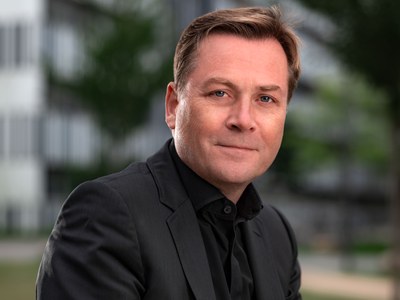
“It turns out – in very different subjects, for instance also in law that is considered more conservative – that this is an extremely effective way to retain young scientists earlier on.”
From your perspective, what is the significance of the tenure-track professorship in Germany’s scientific system?
The significance of the tenure-track professorship is steadily increasing. Nevertheless, I would say that more than half of all lifelong professorships nationwide are still being filled directly, without a previous tenure-track professorship. This has to do with faculty culture and perhaps also with a resistance to change. That being said, I believe the trend in favour of the tenure track will continue.
When you consider the scientific culture at your university, would you say the introduction of the tenure-track professorship caused a cultural change?
Absolutely. It turns out – in very different subjects, for instance also in law that is considered more conservative – that this is an extremely effective way to retain young scientists earlier on. This has convinced many of the benefits of the tenure-track programme.
What influence does the introduction of the tenure-track professorship in Germany have on the international attractiveness and competitiveness of your university?
A big influence. As I said, this allows us to retain highly qualified, newly graduated doctoral students from all over the world. Just yesterday, I was on a Zoom call with a post-doc from Harvard who intends to switch to a W1 tenure-track professorship with us in Potsdam in the autumn. Open-topic positions also have a special potential to attract top-class people. We received more than 1000 applications for our four advertised open-topic positions.
What opportunities does the tenure-track professorship offer for scientists in an early career phase?
It offers very high planning certainty, independence and freedom in research, and teaching at a comparatively young age.
In your opinion, what’s important in designing the evaluation procedures? How are professors supported in preparing for that?
Transparency and advice at the right time are important. This can be realised in particular through mentoring programmes for tenure track colleagues that can identify possible undesirable developments early on.
What support is offered at your university to promote work/family balance? How does this address the needs of scientists in an early career phase?
The University of Potsdam – with multiple certifications as a family-friendly university – offers comprehensive, relevant advice. With regard to the tenure track, parents have the option of extending the probationary period due to pregnancy and parental leave.
More interviews
Back to top of page